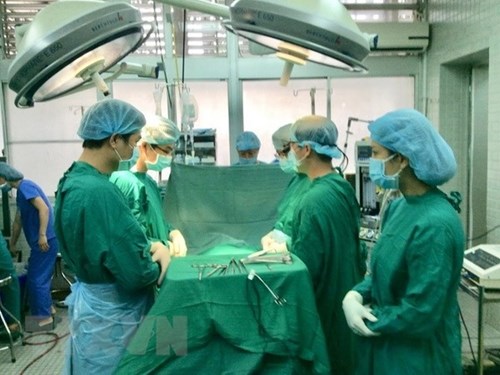The number of volunteers registered for tissue and organ donation has increased in the past several years. In 2014, there were only 265 volunteers registered for tissue and organ donation after death or brain death.
    |
 |
|
Doctors bow to the organ donor at a hospital in Hanoi. |
As of 2015, the number increased to 2,000, and by 2018, the number has grown to nearly 18,000.
However, there was a huge gap between the need for organ transplants and limited organ donation, Phuc said.
He said the law on donation, removal and transplantation of human tissues and organs, which was passed in 2006, has created a legal framework for the activities in the country.
It has also encouraged those who were qualified and willing to donate a part of their body while alive or tissues and organs after death. Accordingly, any person 18 years old or older who has civil capacity and voluntary behavior has the right to donate tissues and organs while alive or after death.
Phuc said the receipt of tissues and organs for transplants had to meet strict criteria for hygiene.
Figures from the Traffic Safety Committee showed that in one year an average of nearly 10,000 people died from traffic accidents, he added.
Although the numbers were not desirable, access to donor organs from these individuals could meet the need for organ transplants, Phuc said.
The health sector has made efforts to educate and encourage the community to open its heart to donate tissues and organs to help save lives in the future, he said.
Source: VNA